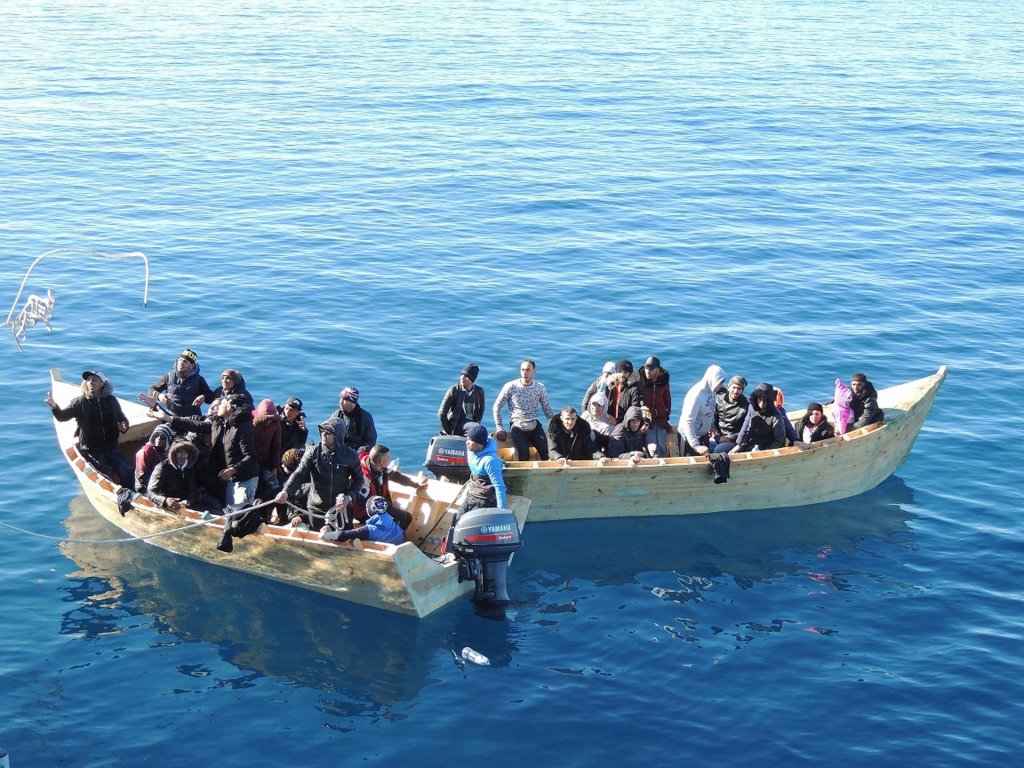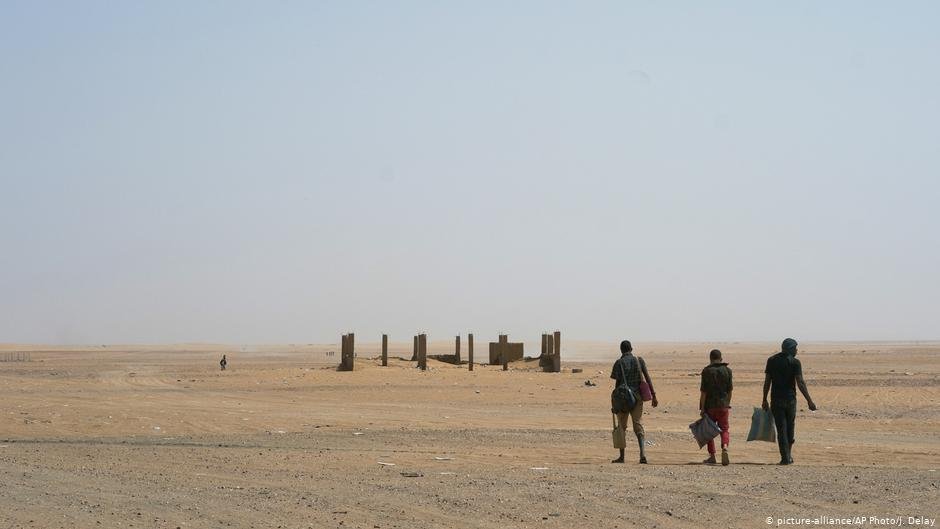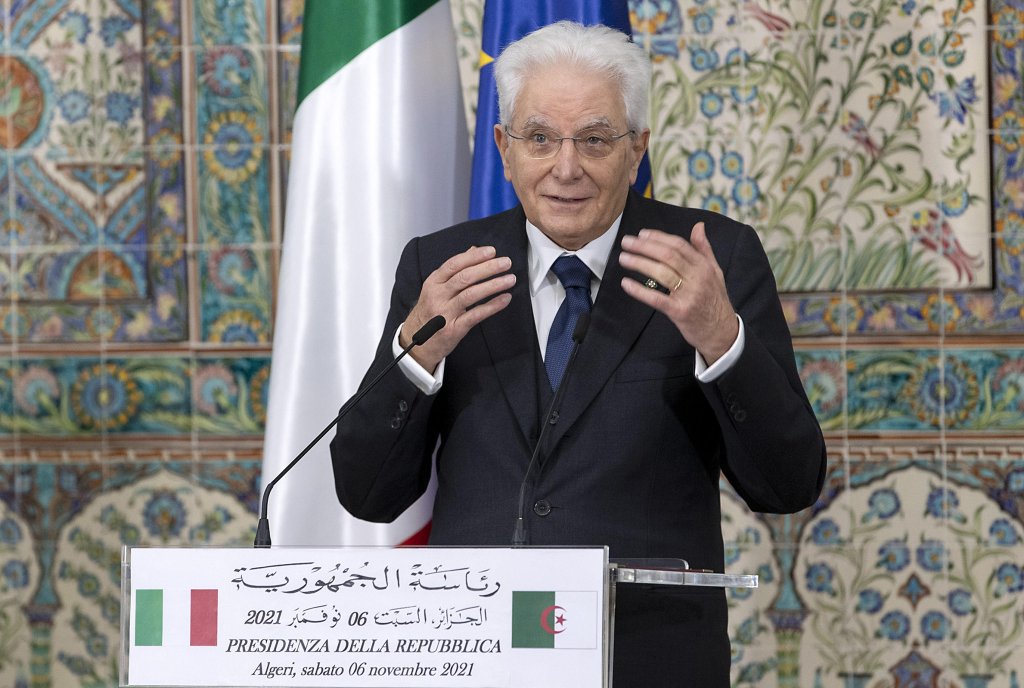[ad_1]
Italy’s prime minister Mario Draghi visited Algeria on Monday. The summit was one in a long line of deepening relations between the two countries, which began most recently last November. Energy, migration and stability in the Mediterranean were on the agenda.
A total of 15 main accords were signed between Italian and Algerian ministers on the occasion of the Italian government visit to Algeria on Monday, July 18. The visit, spearheaded by Italian Prime Minister Mario Draghi, was the last in a series of bilateral summits and signed accords between the two countries which began in November 2021.
The strengthening of cooperation between the two countries has become particularly important now as Italy, and Europe, search for alternative energy sources, to free themselves from their dependence on Russian gas.
“Friendship between Algeria and Italy is essential to face the challenges ahead,” underlined Italian Prime Minister Mario Draghi in a statement to the press on Monday, and released as a video. Mario Draghi traveled with several cabinet ministers, including Luigi Di Maio, Italy’s foreign minister.
A series of bilateral agreements and visits
“This is the last in a series of important meetings between our two countries,” said Draghi, naming a series of bi-lateral visits between the leaders and ministers of the two countries, beginning in November 2021 and culminating in Draghi’s visit in July.
Given the current situation, following the Russian invasion of Ukraine, energy was at the top of the agenda. Algeria has now become Italy’s most important gas supplier, overtaking Russia. Italy wants to work with its Algerian counterparts to develop that exchange further, as well as developing renewable energies in the fields of solar, wind, green hydrogen and geothermal energy, said Draghi.
Business and enterprise is another key sector that the Italians want to develop. Draghi mentioned the biomedical industry, the pharmaceutical industry and agro-industrial sectors as key sites of the new series of public-private partnerships the two countries hope to take forward for the future.
“Algeria is a very important partner for Italy, in the energy field, in industry, and business, enterprises, but also in the fight against criminality, in the search for peace and stability in the Mediterranean,” said Draghi.

Migration towards Europe
While gas, energy and enterprise may have made the headlines and comprise many of the new accords, cooperation on the subject of migration between Italy and Algeria and Algeria and the European Union as a whole has been an important plank of accords signed with the North African country since 2005.
The EU first signed an “Association Agreement” with Algeria in 2005. Then in March 2017, a further protocol was signed, adopting new “Partnership Priorities.” These included agreements that Algeria would contribute to the stability of the region, both in the Mediterranean and the Sahel region. Stability in the region was underlined again several times by Draghi in his addresses, even when he didn’t directly refer to migration.
As part of the Partnership Priorities, which were extended in 2021, Algeria and the EU undertook to work together to prevent trafficking of drugs, humans and arms. “Migration and mobility of humans is at the center of these agreements. The EU and Algeria undertook to develop cooperation over these matters.”
In 2017, the accord noted that “migratory flows between Algeria and the EU are both an opportunity and a human resource which can aid human, cultural, economic, social and scientific development, but they are also a challenge if they are not managed well, especially in the current regional context.”
Algeria and the EU agreed to keep up regular dialogue on the situation and discuss mobility, migration and the right to asylum. “The EU will support Algeria in its efforts to manage migratory flows,” read the 2017 Partnership Priorities. Both parties said they would fight against the trafficking of humans, and improve the return policy for migrants found not to qualify for asylum and without the correct papers to work in the EU.

‘Safe secure, legal and orderly migration’
In 2019, the EU said it had approved a total of €807 million for 35 programs across North Africa, including Algeria, Egypt, Libya, Morocco and Tunisia. “This region is characterized as an area of origin, transit and final destination for mixed migration flows from sub-Saharan Africa, West Africa, the Horn of Africa and the Middle East,” read an EU fact sheet about the agreement.
The bloc’s “global objective for the North of Africa window is to contribute to safe, secure, legal and orderly migration from, to and within the region and support an effective management of migration flows that protects human rights.”
Back in November 2021, when Italian President Sergio Mattarella visited Algeria and met with Algerian President Abdelmadijid Tebboune, gas and migration were also on the agenda. Euronews at the time reported that Algeria was facing a very unstable internal situation and was “on the limits of collapse.” It needed Western partners, reported Euronews, especially after the stresses placed on the economy and society by the COVID-19 pandemic.
In February 2022, the EU announced that Algeria, along with Libya and Egypt, would benefit from a further €18 million in “humanitarian funding.” The money, said the EU Commissioner for Crisis Management Janez Lenarcic at the time, would be given to humanitarian organizations in the country to help “vulnerable people affected by conflicts, instability or displacement.”
€9 million of those funds were destined for Algeria “to help meet the most urgent humanitarian needs of vulnerable Sahrawi refugees [Refugees resulting from the war and conflict in Western Sahara].” The funds were intended to “help them access food, nutrition, improve access to safe water and basic healthcare as well as education,” stated an EU press release.
Algeria: ‘A giant of enormous fragility’
Many young people in Algeria have been critical of the government. According to predictions by the International Monetary Fund (IMF), the rate of unemployment in Algeria is expected to rise. In May 2019, according to a report on Algerie 360 –a news and information platform about Algeria, unemployment for young people between 16 and 24 years of age was already at 26.9%.
The IMF has predicted that the overall unemployment rate stands at 14.86% in 2022 and could rise to about 17% in 2024 and 19% in 2026. With young people hardest hit by unemployment and social exclusion, the signs are there for Algeria to become the next source country for migration towards the EU.
Earlier this year, Algeria was described in a report published on Euronews as a “giant of enormous fragility.” Small numbers of Algerians already attempt to cross the Mediterranean towards the Italian island of Sardinia every year.

Unemployment set to rise
However, in 2022, arrivals from Algeria to Europe dipped significantly, by 46%, compared with the same period (January-July) last year, according to news agency Associated Press (AP). In fact, migrants from Algeria are not even mentioned among the top ten countries of origin for migrant arrivals this year.
In contrast, in 2020, according to figures from the Italian interior ministry and published on the financial newspaper Il Sole 24 Ore, Algerians accounted for the greatest number of arrivals, far above those from Ivory Coast, Iraq, Iran, Bangladesh, Tunisia, Nigeria, Mali, Guinea and Ukraine.
Like much of the Middle East and North Africa, Algeria is now also facing a potential food crisis if the grain from Ukraine, blocked in the Black Sea, cannot reach world markets. Mario Draghi said the Italian government was working hard to make sure that the blockages in the Black Sea were released and that grain could once again flow.
The Italian and Algerian leaders hope that the most recent accords will contribute to the overall stability in the Mediterranean region, and thus in Europe as a whole. Mario Draghi concluded in his statement to the press: “We want to continue to work together and make sure that our businesses and people prosper for the future of the Mediterranean.”
[ad_2]
Source link
